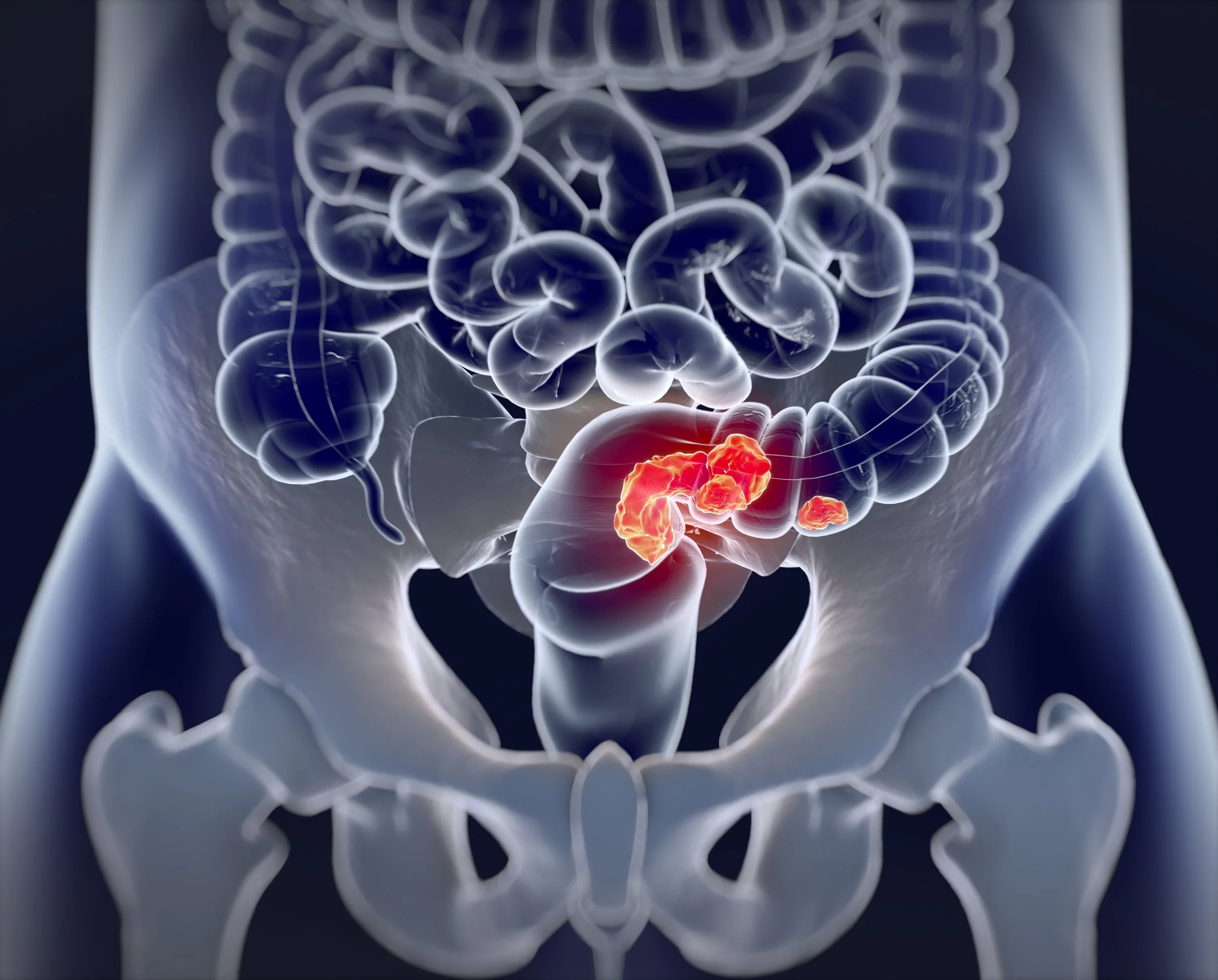According to Cancer.org, more than 105,000 new cases of colon cancer are diagnosed every year. While that incidence might seem low, it’s still important for you to see your doctor for routine colonoscopies once you turn 45. In this post, we’ll take a look at the answers to some common questions we hear at the Colorectal Clinic of Tampa Bay: what is the main cause of colon cancer, what foods cause colon cancer, and who is at high risk of colon cancer?
What Is Colon Cancer?
First and foremost, let’s pause to take a look at what colon cancer is. Like other cancers of the body, colon cancer is the result of one or more cells in the colon being augmented by either external or random factors, causing a mutation in one of a few tumor suppressor genes. These changes allow the cell to divide without checks and balances, resulting in a cancerous growth that can eventually spread to other areas of the body.
The Symptoms of Colon Cancer
The symptoms of colon cancer are most often silent, not causing obvious damage until it’s too late. Advanced cases of colon cancer can cause the following symptoms:
Diarrhea or constipation
Bloody stools
Abdominal pain and bloating
Unexplained weight loss and fatigue
What Is the Main Cause of Colon Cancer?
As mentioned above, colon cancer is mostly caused by random, uncontrollable mutations. However, there are some environmental factors that have been linked to changes in the lining of the colon. For example, a high fat, low fiber diet is associated with colon cancer, as is drinking excessive amounts of alcohol or smoking cigarettes. If you have a chronic inflammatory bowel disease, you might also be predisposed to developing colon cancer. We’ll go into a few more risk factors below.
What Foods Cause Colon Cancer?
It’s widely accepted that highly processed meats and red meat contribute to an individual’s risk of developing colon cancer. Medical professionals aren’t exactly sure why this is the case, but it’s worth a cautionary mention.
Who Is at High Risk of Colon Cancer?
In addition to the risk factor listed previously, patients with hereditary diseases like familial adenomatous polyposis or hereditary nonpolyposis colon cancer (Lynch syndrome) are at a much higher risk of developing colon cancer. Type 2 diabetics are also at a greater risk. For more information about genetic states that might predispose you to colon cancer, check out Genome.gov.
How Do I Prevent Colon Cancer?
Since the majority of colon cancer starts out as harmless, pre-cancerous polyps, it’s actually quite easy to catch this condition before it becomes harmful – even deadly. This requires that you have routine scoping procedures called colonoscopies. Most individuals can wait until the age of 45 to begin this routine; patients with genetic predispositions may need to begin as early as in their teens.
Other colon cancer prevention tips include:
Avoiding processed meats and red meat
Eating more fiber
Eating less fatty foods
Cut back on alcohol
Quit smoking
Get regular exercise
Drink more water
Where Can I Get a Colonoscopy in Tampa Bay?
Here at the Colorectal Clinic of Tampa Bay, our colorectal specialists offer colonoscopies. You won’t have to travel far for your routine procedure; additionally, if anything is spotted during your scope, our team of pathologists can take a look at a biopsy right away. We also offer in-house solutions for polyps, like surgical removal so that you don’t have to travel to many different healthcare facilities for a single issue. Contact us today to schedule your colonoscopy!

